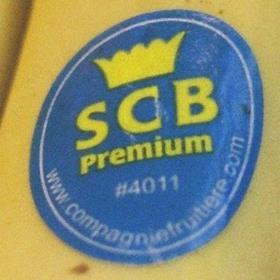
Intense fighting in Côte d’Ivoire, West Africa, resulted in a virtual shutdown of the country’s port and logistics network at the start of April, preventing fresh produce exports, including bananas, from leaving the country. According to a number of sources, access to the country’s main port of Abidjan was suspended indefinitely, with reefer vessels unable to dock and collect fruit.
Philippe Mavel of OCAB, the country’s central organisation of banana and pineapple exporter-producers, described the situation as “very serious” and said that it was impossible to predict when it might improve. “The country is in crisis,” he said. “No ships are coming to the port and nothing has been exported since the beginning of April. The economy has come to a standstill.”
Even without such problems Côte d’Ivoire banana producers face an uncertain future, as tough competition from the large Latin American producers threatens to drive them from their one viable market, Europe. At the end of the 1980s, around 5,000 small- and medium-size banana producers operated in Côte d’Ivoire. Now, according to Mavel, there are essentially only four groups, all of which are struggling to survive.
“We don’t enjoy the same conditions as the Latin American producers,” says Mavel. “They benefit from economies of scale. Ecuador produces 6m tonnes a year, whereas Côte d’Ivoire produces 240,000 tonnes and all the ACP countries combined produce only around 1m tonnes.”
And Mavel fears that the 2009 tariff reduction for Latin American producers will further exacerbate the problem. He believes that ACP producers have been saved thus far by pure good fortune. “Three phenomena have masked the problem by ensuring the European market is not oversupplied,” says Mavel. “These are: climatic problems in Latin America, high US demand and the strength of the Russian market.”
In the future, Mavel believes the answer may have to be regional trade. OCAB is working to build?relations with organisations in the likes of Mali, Senegal, Nigeria, Burkina Faso and Guinea for the trade of fruit, vegetables, meat and fish. Should African exporters be driven out of the European market, such an alternative will be essential.



